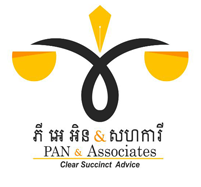Banking Operations in Cambodia
A banking license is a mandatory legal authorization for any financial institution seeking to conduct banking-related activities within Cambodia. The Cambodian financial landscape comprises three primary institutional categories: commercial banks, specialized banks, and microfinance institutions (MFIs), with additional minor licenses available for fintech operations. Each type of institution offers distinct services and is subject to specific legal, capital, and operational requirements.
License Issuance
The National Bank of Cambodia (NBC) is responsible for granting banking licenses to corporations that fulfill its stringent criteria. These requirements encompass minimum capital thresholds, directorial composition, shareholder residency, shareholding distribution, and beneficial ownership disclosure, among other stipulations. The specific conditions may vary based on the desired license type.
Obtaining a banking license can be a protracted, intricate, and costly process, influenced by factors such as the license category and the intended bank structure (public or private). For instance, a general banking license empowers an institution to engage in a full spectrum of banking services, including retail banking, merchant acquiring, cash management, asset management, and trading.
Capital Requirements
In a significant regulatory move, NBC introduced new minimum registered capital requirements for financial institutions through Prakas issued on March 22, 2016. These mandates, outlined below, were to be implemented within a two-year transitional period.
- Licensed commercial banks: $75 million
- Branches of investment-grade foreign banks: $50 million
- Branches of non-investment-grade foreign banks: $75 million
- Specialized banks: $15 million
- MFIs with deposit-taking licenses: $30 million
- MFIs without deposit-taking licenses: $1.5 million
Non-compliance with NBC directives may result in severe penalties, including fines, legal prosecution (for individuals), license revocation, directorial dismissals, or provisional administration.

